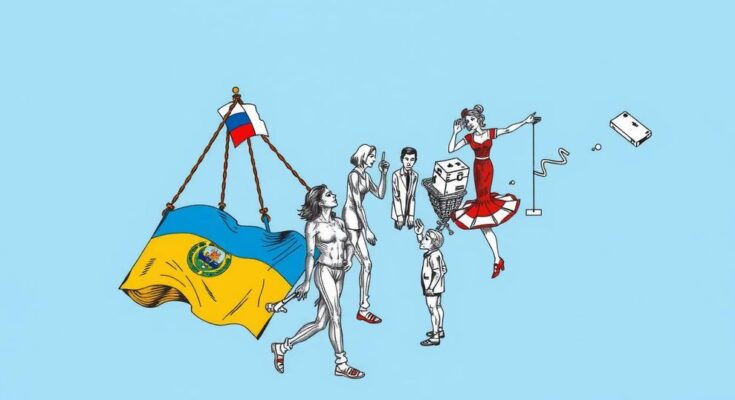Uruguay’s recent presidential elections were marked by uninspiring candidates and notable voter apathy, particularly among the youth, who struggle with high unemployment and socio-economic challenges. A significant portion of young voters expressed a willingness to abandon democracy for solutions to their problems. As the nation heads into a runoff election, the disconnect between candidates and the electorate raises concerns about the future of democracy in Uruguay.
In a year marked by significant elections across Latin America, Uruguay’s presidential voting in the previous month regrettably went unnoticed. This seems justified given the uninspiring candidates and their insufficient appeals to undecided voters, culminating in no candidate achieving a majority. Consequently, fatigued voters now brace for another series of uninspiring speeches as a runoff election approaches on Sunday.
Uruguay’s typically vibrant political atmosphere has dimmed considerably. Historically, elections have been characterized by enthusiastic public engagement, with a rich tradition of spirited street debates and political demonstrations commemorating our hard-won democracy post-dictatorship. With a population of 3.4 million, we have prided ourselves on political stability amidst regional turbulence. However, this election season’s dullness masks a critical issue for our future: the growing disillusionment among the youth, a demographic crucial to the nation’s democracy.
Despite Uruguay’s positive image as an economically and socially progressive nation, many young people feel overlooked. A recent Latinobarómetro survey revealed that 38 percent of young respondents would consider sacrificing democracy for a solution to their issues. They face a plethora of challenges, including a youth unemployment rate of 26 percent and alarming levels of food insecurity. Furthermore, a high dropout rate in high schools, increased poverty levels among children, and a concerning mental health crisis exacerbated by the Covid-19 pandemic paint a bleak picture.
This has resulted in widespread political disinterest, particularly among young voters. The older generations are equally disenchanted due to the government’s perceived inadequacies regarding childhood poverty, corruption, and rising crime levels. Although inflation has moderated, public debt has risen alongside reports of governmental financial mismanagement.
In discussions with undecided young voters in Montevideo prior to the first round of elections, it became evident that candidates Yamandú Orsi and Álvaro Delgado appeared as distant and out of touch with their realities. It is imperative that political leaders recognize and address these issues to rekindle faith in Uruguay’s democratic process.
Uruguay is known for its rich democratic tradition and political stability in Latin America, a reputation built over decades. Historically, elections in the country have been vibrant, marked by public participation and spirited discourse, grounded in a collective memory of overcoming a dictatorship. However, as the current electoral cycle unfolds, a concerning trend has emerged; the engagement from young voters is diminishing due to socio-economic challenges they face, highlighting a growing disconnect between political candidates and the electorate. It is essential to examine the socio-political context affecting these sentiments, especially considering the rising trends of political apathy among younger demographics, which could undermine the strength of Uruguay’s democracy moving forward.
The lackluster nature of Uruguay’s recent elections starkly contrasts with the historically dynamic political environment of the nation. The increasing disenchantment among the youth, coupled with broader societal concerns such as economic instability and high unemployment rates, signals a critical moment for the country’s democratic resilience. Political leaders must address these pressing issues to reconnect with the electorate and restore confidence amidst the looming runoff, fostering a political atmosphere that truly represents and responds to the needs of all citizens.
Original Source: www.nytimes.com




